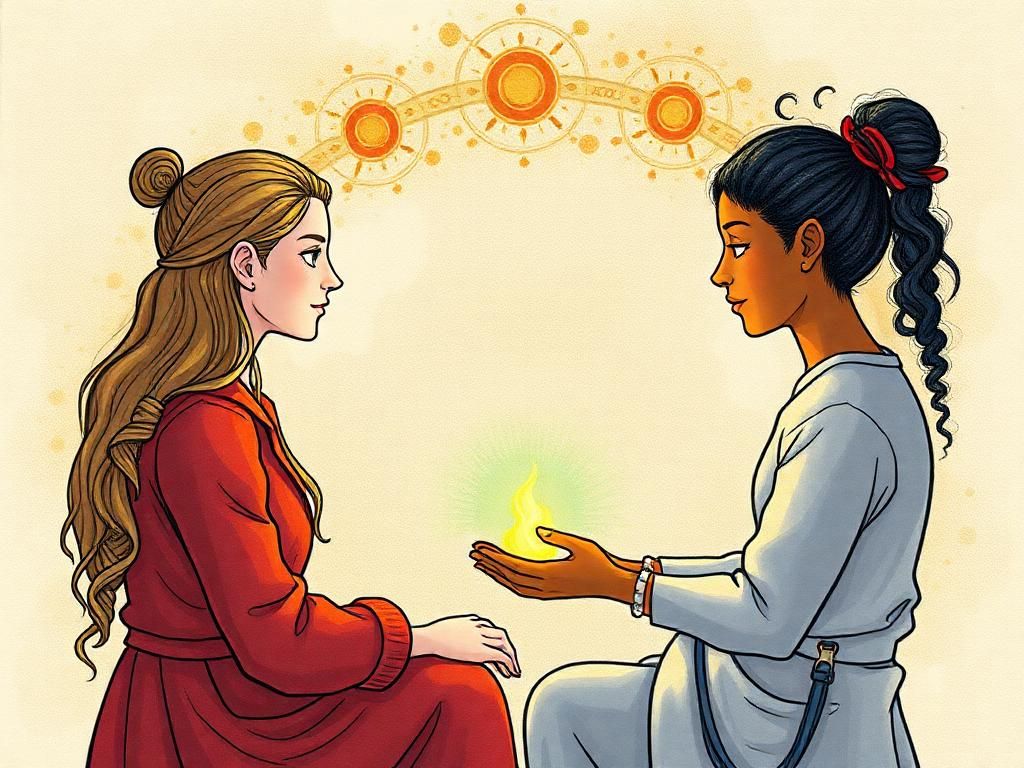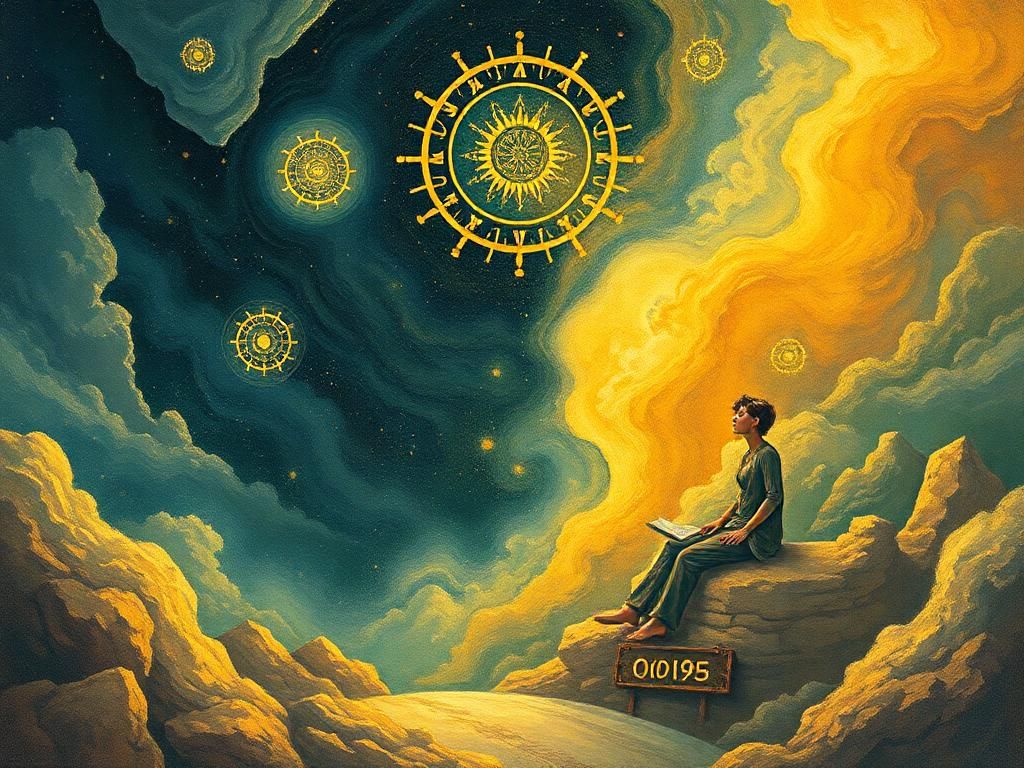The concept of a yes and no oracle serves as a powerful tool for those seeking guidance in decision-making, often infused with an element of mystique and tradition. These oracles have been a part of human culture for centuries, offering insights that help individuals navigate through dilemmas, big and small. In this article, we will delve into the various aspects of the yes and no oracle, including its origins, functioning, practical applications, and common misconceptions, illuminating its relevance in both spiritual and modern contexts.
Understanding the Yes and No Oracle
Definition and Concept
A yes and no oracle is a divination tool or method utilized to provide straightforward answers to specific questions, typically framed in a way that requires a binary response — either “yes” or “no.” These oracles often draw upon historical and cultural practices, steeped in mystical beliefs about fate and intuition. The origins of oracles can be traced back to ancient civilizations, where they were often consulted by leaders and individuals alike for guidance on crucial decisions. Societies from the Greeks with their Delphi Oracles to indigenous cultures around the world have revered oracular guidance, rooted in the belief that unseen forces can influence human affairs.
Types of Yes and No Oracles
1. **Traditional oracles**: These include methods like casting lots, reading tarot cards, and using I Ching. Each tradition has its own symbolism and meanings, making them diverse in interpretation.
2. **Modern oracles**: The advent of technology has given rise to various online oracle tools and applications. These platforms often mimic traditional methods but provide convenience and accessibility for users.
3. **DIY oracles**: Individuals can create their own oracles using simple methods such as writing down answers and drawing from a container. This personal touch allows for unique interpretations and personalization.
How Yes and No Oracles Work
Mechanisms of Decision-Making
The functionality of a yes and no oracle often hinges upon randomized methods and intuitive understanding:
– **Randomized methods**: Classic techniques like flipping a coin or rolling dice introduce an element of chance, eliminating bias in decision-making processes.
– **Symbolic interpretation**: Many oracles rely on the meanings associated with various symbols. For instance, tarot cards can offer profound insights based on the positions and combinations drawn.
– **Integration of intuition**: Oracles engage personal energy and intuition, allowing users to connect with their inner selves, which adds another layer to the experience.
Psychological Aspects
The influence of a yes and no oracle extends beyond simple answers; it delves into the psychological realm:
– **Role of belief and mindset**: The effectiveness of oracles can heavily depend on the user’s belief in their potential. A positive mindset can enhance the interpretative experience.
– **Cognitive biases**: Factors such as confirmation bias can skew how users interpret the answers they receive from oracles, often reinforcing pre-existing beliefs.
– **Emotional impact**: Receiving a definitive answer can create strong emotions, prompting users to reassess their emotional readiness concerning the decisions at hand.
Popular Yes and No Oracle Tools and Methods
Classic Methods
– **Coin Method**: This straightforward technique has pros like simplicity and speed; however, its main con is the oversimplification it might encourage in complex situations.
– **Tarot Cards**: These cards can be insightful even for binary questions, as they offer nuanced answers that may lead to deeper contemplation beyond just “yes” or “no.”
– **Pendulum Dowsing**: A pendulum can sway in a particular direction to indicate answers; however, proper technique is required to ensure accuracy in the interpretation of results.

Digital Oracles
The rise of digital platforms has led to a plethora of oracle apps and websites. When searching for a reliable digital oracle, consider features such as:
– User-friendly interfaces
– Variety of oracle types available (e.g., tarot, yes/no, I Ching)
– Positive user experiences and reviews
One popular option is [Tarot.com](https://www.tarot.com), which provides both traditional tarot readings and more modern approaches for users seeking quick answers.
Practical Applications
Everyday Decisions
The utilization of a yes and no oracle can be particularly beneficial in everyday scenarios. Examples include:
– **Choosing a restaurant**: Instead of deliberating for hours, ask the oracle and go with the answer given.
– **Management of time**: If faced with multiple tasks, using an oracle to prioritize can help streamline the decision-making process.
For effective question framing, keep queries specific and direct, ensuring a focus on immediate concerns. For instance, rather than asking, “Will I be successful?” opt for “Is this job application worth pursuing?”
Spiritual and Personal Growth
In addition to practical applications, oracles play a significant role in self-reflection and spiritual insight:
– Oracles can assist in manifesting intentions or desires, serving as a motivational tool.
– They can also facilitate deeper introspection during times of reflection, encouraging personal exploration and growth.
When engaging with oracles, ethical considerations are paramount; remember that they are not infallible and should be used as supplementary guidance rather than sole determiners of fate.
Common Misconceptions
Debunking Myths
Many misconceptions surrounding the yes and no oracle can hinder understanding:
– **”Oracles predict the future”**: It is essential to clarify that oracles provide insights based on current energies and decisions rather than definitive prophecies.
– **Belief in infallibility**: No oracle is an infallible source of truth. They should be regarded as reflective guides rather than absolute authorities.
– **Spirituality versus superstition**: Understanding that using oracles can be a spiritual practice distinct from superstition can help mitigate stigma around their use.
Understanding Limits
Recognizing when to rely on a yes and no oracle versus seeking professional advice is vital:

– Major life decisions often require nuanced considerations that an oracle may not adequately cover. Consulting professionals in those contexts can provide more holistic guidance.
– Risks of dependency can arise when individuals rely too heavily on oracles, potentially hindering personal growth and decision-making skills.
Conclusion
In summary, the yes and no oracle serves as an effective tool for individuals seeking simple yet profound guidance in their decision-making processes. Whether through traditional or modern means, understanding the workings, applications, and common misconceptions can facilitate a more meaningful interaction with oracles.
Additional Resources and References
Books and Literature
For those interested in delving deeper into the world of oracles and divination, consider exploring these recommended titles:
1. “The Complete Guide to Tarot and Card Meanings” by Liz Dean
2. “The I Ching or Book of Changes” translated by Richard Wilhelm
Online Resources
Engage with fellow oracle enthusiasts through reputable online platforms, including:
– [Tarot.com](https://www.tarot.com) – Offers daily readings and insights.
– [Aecletic Tarot](https://www.aeclectic.net) – A vibrant community for sharing experiences and learning.
Community and Workshops
Participating in community events and workshops can enhance your understanding and practice of oracles. Look for local metaphysical shops or spiritual centers that offer classes and group readings.
Call to Action
Now is the time to explore the captivating world of the yes and no oracle. Whether you choose to engage with traditional tools or digital platforms, use this opportunity to seek guidance in your own life. Share your experiences and newfound insights in the comments section or across social media platforms!
Frequently Asked Questions
1. **What is a yes and no oracle?**
A yes and no oracle provides direct answers to specific questions, usually resulting in a binary response.
2. **Can anyone use a yes and no oracle?**
Yes, anyone can use oracles with an open mind and a willingness to engage with the process.
3. **What are some common methods used in yes and no oracles?**
Common methods include coin flipping, tarot readings, and pendulum dowsing.
4. **How can I ensure I ask the right questions?**
Frame questions that are clear, specific, and focused on your immediate concerns for better guidance.
5. **Are digital oracles as reliable as traditional ones?**
Digital oracles can be reliable, but personal belief and connection to the tool also play a significant role.
6. **Is it ethical to use oracles for making decisions?**
Using oracles for guidance is generally ethical provided it is not treated as the only means of decision-making.
7. **What should I do if I feel anxious about the answers I receive from an oracle?**
Reflect on your feelings and consider speaking with a friend or counselor for support if the responses cause distress.
8. **Can oracles help me with long-term planning?**
While oracles can provide insights, they should not replace thorough planning and professional advice for long-term decisions.
9. **How often should I consult an oracle?**
Frequency can vary; some may seek daily guidance, while others might use them only for significant decisions.
10. **What if I keep getting the same answer from an oracle?**
Repetition may signal that you need to reflect on the question or consider its implications more deeply.
